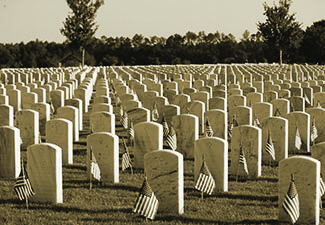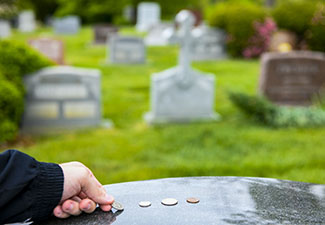What is Veterans Day? Facts, Meaning, and History
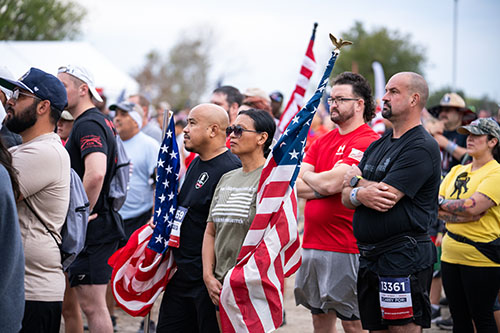
Veterans selflessly serve their country, often putting themselves in harm's way to defend the freedoms we all enjoy.
Veterans Day is celebrated to honor and thank those who served in the United States Armed Forces. Veterans Day is also an opportunity to acknowledge the courage and dedication of veterans’ service to our country.
| Veterans Day Facts | |||||||
|---|---|---|---|---|---|---|---|
| Observed On | Nov. 11 | ||||||
| Known Initially As | Armistice Day | ||||||
| Date Established | Nov. 11, 1919 | ||||||
| Originally Established By | Woodrow Wilson | ||||||
Test Your Knowledge
The Meaning of Veterans Day
Every year on Veterans Day, communities nationwide unite to honor all who served or are still serving in the military. From parades and ceremonies to special events, the day honors veterans' contributions to our country and shows appreciation for their sacrifices. It is also a time to reflect on the challenges veterans can face when returning home or transitioning into civilian life.
While the textbook meaning of Veterans Day provides a general understanding of what it is and why we celebrate, the individual perspectives of veterans capture the day's essence. Each veteran Wounded Warrior Project® (WWP) serves has unique experiences that shape what Veterans Day means to them.
The videos below offer a glimpse into their thoughts:
The History of Veterans Day
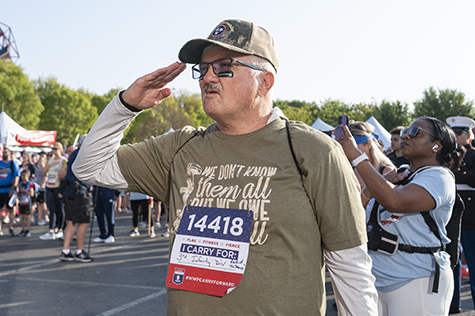
Veterans Day was initially known as Armistice Day and celebrated the end of World War I. The armistice, or call for peace, by the Germans was signed on Nov. 11, 1918, at the “eleventh hour” and ended the fighting between Allied forces and Germany. President Woodrow Wilson established Armistice Day one year later to honor those who served in WWI and celebrate the peace that followed.
After World War II and the Korean War, veterans service organizations urged the U.S. Congress to amend the holiday to be more inclusive of all veterans. Thus, Veterans Day was officially born in 1954 to honor American veterans, past and present. President Dwight D. Eisenhower was responsible for formally changing the name.
Veterans Day is recognized in other countries but may have a different name. In Canada, Nov. 11 is Remembrance Day (or Poppy Day). While it also acknowledges veterans, the day's emphasis is on remembrance and paying tribute to those who made the ultimate sacrifice. People often wear remembrance poppies are often worn to honor those who died in war.
Great Britain also calls it Remembrance Day but observes it on the Sunday closest to Nov. 11. They hold parades and services, in addition to moments of silence for the fallen.
When is Veterans Day This Year and Beyond?
Veterans Day is observed on Nov. 11 every year. Here are the days when it falls this year and in the coming years:
- 2025: Tuesday
- 2026: Wednesday
- 2027: Thursday
- 2028: Saturday
How is Veterans Day Observed?

Veterans Day is always observed on Nov. 11, no matter what day of the week it falls on. It is a federal holiday, so many government offices, schools, and businesses close. If Veterans Day falls on a weekday, many communities choose to host their events the weekend before or after.
At the national level, the Arlington National Cemetery recognizes Veterans Day with a wreath-laying ceremony at the Tomb of the Unknown Soldier. Typically, the president or an appointed representative will lay the wreath on this day.
Across the country, smaller towns and communities host events, including flag-raising ceremonies, moments of silence, and tributes at local veterans' memorials. Schools often organize special assemblies to educate students about the significance of Veterans Day and the service of military members. Businesses may offer discounts or free services as a token of appreciation.
Understanding the Difference Between Veterans Day and Memorial Day
A common question is, “What's the difference between Veterans Day and Memorial Day?”
Although they both involve honoring the military community, they serve different purposes. Memorial Day honors and remembers those who gave their lives in service to their country. While we remember deceased veterans on Veterans Day, the day primarily celebrates all living veterans who served in war and peace.
Another critical difference is when the holidays occur: Memorial Day is in May, and Veterans Day is in November.
Does Veterans Day Have an Apostrophe?
The quick answer is no. According to the U.S. Department of Veterans Affairs, the day does not belong to one veteran; it honors ALL veterans.
In a traditional sentence, the word ‘veterans’ is typically used as a noun. On Veterans Day, it’s used as an attributive noun or adjective.
Ways to Thank a Veteran on Veterans Day
Whether you express personal gratitude or get involved in a bigger way, there are simple and impactful things you can do to show appreciation. Here are some ideas:
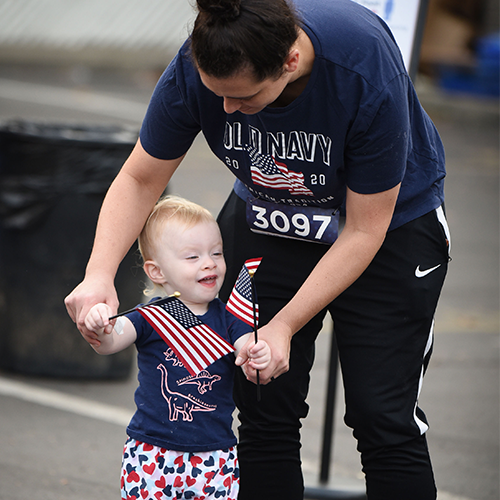 Say thank you
Say thank you
A heartfelt thank you or a personalized note or card are thoughtful ways to show a veteran how much you appreciate their sacrifices. “I think in most cases, veterans are humble, and a simple thank you is more than enough,” said U.S. Marine Corps veteran David Daly.
Some veterans feel that going beyond the traditional ‘thank you for your service’ can add more meaning. “A better thing to say might be, ‘Thank you for my freedom,’” said Tina Waggener, U.S. Army veteran. “Or ‘Thank you for serving when I couldn’t.’ Or ‘Thank you for sacrificing your freedom so I can have mine.’”
Make a connection
Grab a coffee or a meal with a veteran or attend a Veterans Day event together. “Going to those events can seem daunting to plan and overwhelming to get to and from with traffic. Yet, I think most veterans would go with a friend that wanted to go,” said David. “The veteran would feel connected to the civilian friend and the veteran community as a whole. And that's what we miss. We miss camaraderie.”
Listening to veterans’ stories is another powerful way to connect and understand the military community. “This shows a lot of interest and appreciation – to give your time as a veteran gave their time,” continued David. You can also learn more by volunteering at veteran support organizations or events that honor veterans.
Show your support
Consider donating to nonprofit organizations that support veterans. Shop at veteran-owned businesses or ones that back veteran causes. If you own a business, consider offering discounts or free services to veterans on Veterans Day. Contact your local Veterans Affairs (VA) office and ask what you can do to help.
Beyond direct support, raising awareness of government policies and initiatives that affect veterans also makes a significant impact. “So many people can make a difference by talking to their representatives,” said Tina. “Read up on bills currently in Congress and talk to veterans about how they are affected.”
It’s also important to remember not to make assumptions when acknowledging a veteran. Women often get overlooked for their service, especially if they are alongside males. Tina explains that women are typically the “invisible veteran,” particularly on days like Veterans Day. “When I took my high school son out for Veterans Day, inevitably, people would thank him for his service. And though I never corrected them, my son would say, ‘You can thank my mom for her service.’”
Learn how you can honor veterans beyond Veterans Day.
How Wounded Warrior Project Supports Veterans
Since 2003, WWP™ has helped post-9/11 wounded, ill, and injured veterans, service members, and their families realize what’s possible. The organization helps those who served find their next mission; whether it's the first steps home or years down the path, WWP is there.
Warriors come first in everything the organization does. There is an understanding that every journey is different, from caring for visible wounds to addressing invisible ones. Hands-on programs and resources at WWP are carefully aligned to ensure warriors have the tools to thrive after their service ends. Programs range from mental health and physical wellness to financial well-being, social connection, and independence.
WWP brings warriors, family members, teammates, veterans’ advocates, partners, and donors together to meet the evolving needs of the military community. WWP knows that healing happens together and built a supportive community where no warrior is left alone or behind.
Find out more about how WWP helps veterans and families thrive.
Contact: Kendra Hand – Public Relations, khand@woundedwarriorproject.org, 904.776.7099
About Wounded Warrior Project
Wounded Warrior Project is our nation’s leading veteran services organization, focused on the total well-being of post-9/11 wounded, ill, or injured veterans. Our programs, advocacy, and awareness efforts help warriors thrive, provide essential lifelines to families and caregivers, and prevent veteran suicides. Learn more about Wounded Warrior Project.
